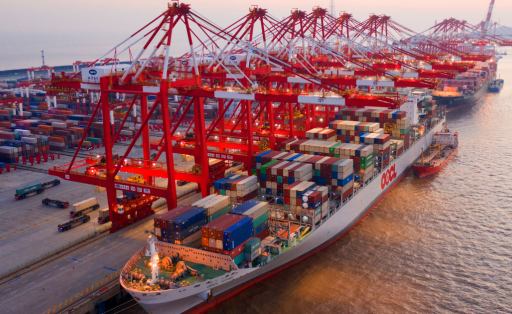



The continuing Covid blockades in Chinese ports clearly illustrate Europe's dependence on Chinese photovoltaic modules. However, the industry expects the situation to improve before the end of the year.
By Manuel Berkel

To reduce its dependence on Russia and China for raw materials and energy imports, the German government wants to work more closely with countries in South America. Meanwhile, an initiative warns of human rights violations and environmental destruction in new raw materials supply chains.
By Leonie Düngefeld


Russia's invasion of Ukraine also calls Germany's economic ties to China into question. Xi Jinping rules in a similar authoritarian manner to Putin. But decoupling from China would hurt the German economy more than Russia's. And so Achim Wambach argues for more free trade. The Head of the ZEW economic research institute explains why in today's interview conducted by Felix Lee.
By Felix Lee



The new president of Eurochambres, the umbrella organization of chambers of commerce, warns against imposing new burdens on companies in the current crisis. He is critical of the rapid introduction of the CO2 border adjustment and wants to improve the Supply Chain Act. In an interview with Till Hoppe, the Luxembourger also warns against the consequences of an oil and gas embargo.
By Till Hoppe

The Omicron wave and China's harsh response to it are weighing on virtually all European companies. In a survey by the EU Chamber of Commerce in China, nearly every company complains about disrupted supply chains, lack of travel and other problems. They desire a different Covid policy. Impatience is growing.
By Christiane Kuehl
In a globalized world, supply chains are one of the most important elements in international trade. In recent years, working conditions and human rights violations in supply chains have caused a stir. The question arises whether Western companies profit from the treatment of workers in China that violates human rights. But it is no longer just about the forced labor of the ethnic minority of the Uyghurs in the cultivation of cotton. In the meantime, large corporations such as Apple and Volkswagen are being targeted. In addition to the European investment agreement CAI (Comprehensive Agreement on Investment) and a planned supply chain law for German companies, Western countries are taking action with sanctions and boycotts against China, but also against the companies involved. But the coronavirus pandemic has also affected supply chains. There have been increased supply bottlenecks and empty shelves worldwide. China wants to counter this with a state-owned logistics company called China Logistics Group. From EU supply laws to human rights violations and sanctions to suppliers and trade strategies - news and articles on China supply chains up to date from the Table.editorial team!